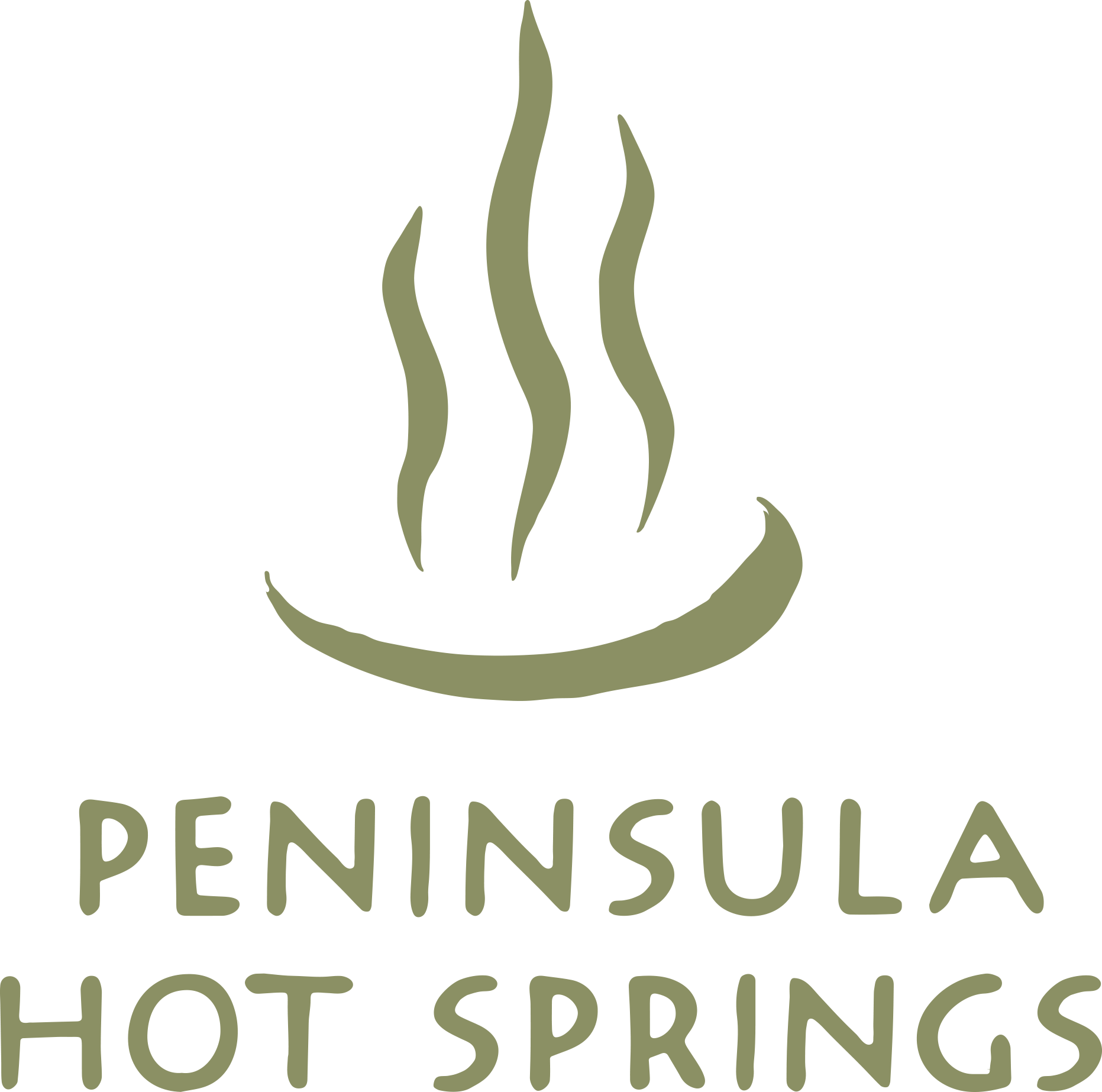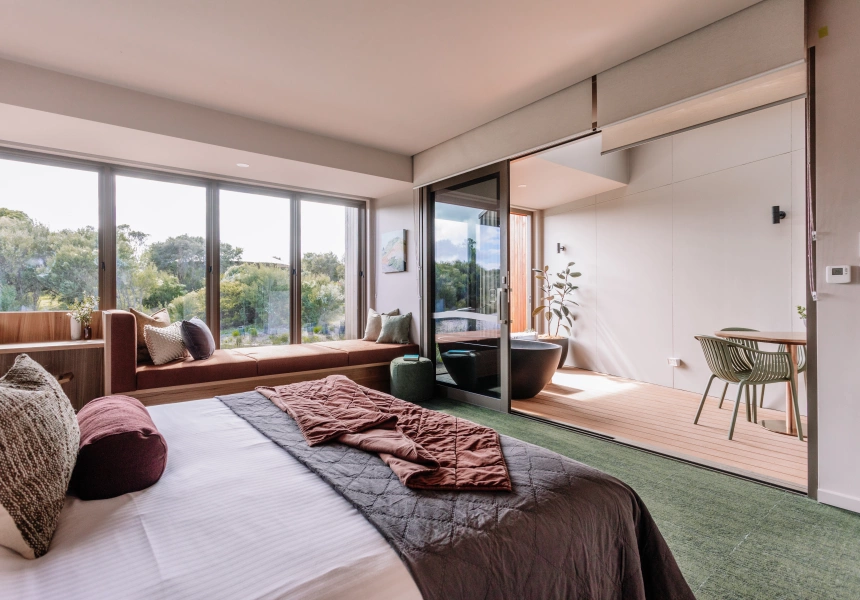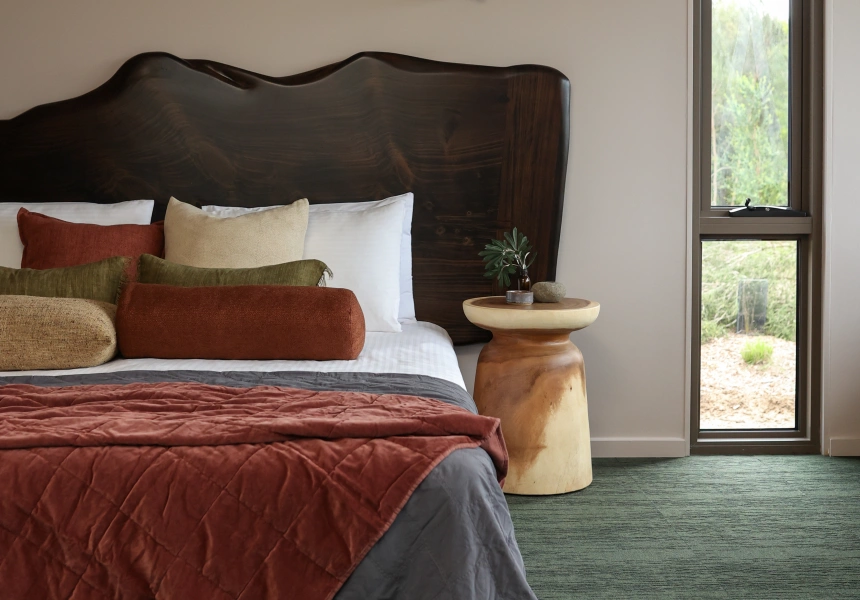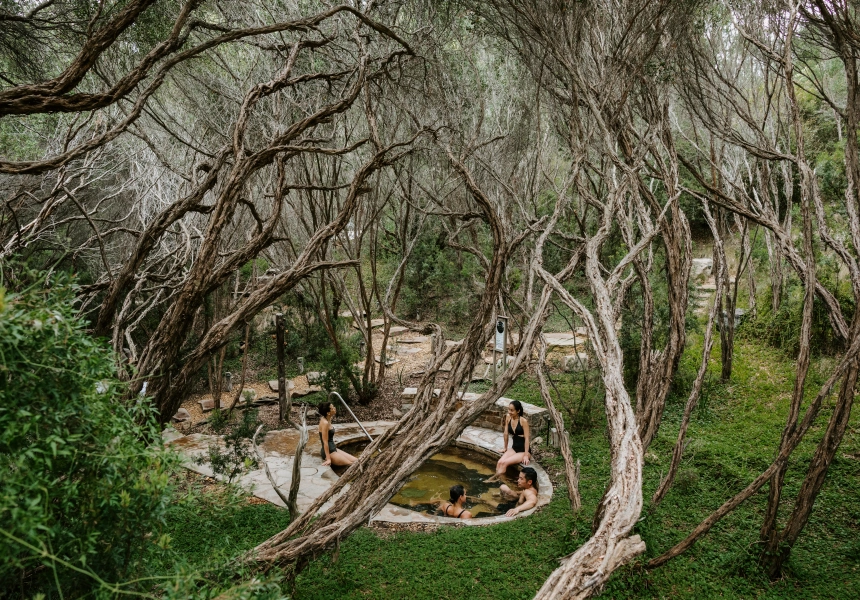There’s some irony to a holiday. It’s supposed to be, well, a holiday. A restful break from our over-scheduled, overstimulating lives. But it’s easy to fall into the very-busy-vacation trap. We go from sunrise hikes to bustling markets to late-night drinks (maybe wrangling children or partners in between). And often, we come back more drained than we were before. One colleague, recently back from Europe, summarised it when she exclaimed: “I’m exhausted!”
Sharon Kolkka, an Australian author and wellness adviser, knows this well. “There are two kinds of holidays,” she says. “There’s a holiday you have because you’re excited about learning about new cultures and visiting different places. And there’s a holiday where you actually rest and recover.”
The latter includes the phenomenon of sleep tourism, which has become a trillion-dollar-industry worldwide and is gaining pace in Australia. “There’s a strong history of sleep tourism in Europe and Japan. Doctors would medically prescribe you to rest and recover,” Kolkka says. Now, so-called sleepcations are becoming more common – with dreamy packages offering everything from sleep butlers and smart beds to massages and meditation. “It can help you deal with burnout, stress and recovery from emotional hits. You press pause on your life and it’s transformational.”
We think you might like Access. For $12 a month, join our membership program to stay in the know.
SIGN UPAnd it’s clearly needed: more than a third of Australian adults say they aren’t getting enough sleep according to the 2021 Australia Talks National Survey. The implications are profound, with a host of physical and mental health problems linked to sleep deprivation.
Kolkka helped design the sleep-wellness program at Peninsula Hot Springs on Victoria’s Mornington Peninsula. “The health messages we get are around food, exercise and mental health. Yet [author of Why We Sleep] Dr Matt Walker says that sleep is the tide that raises all health boats,” she explains. “If you don’t get quality seven to nine hours sleep, nothing can compensate for that.” Nope – not even five coffees before 3pm and a wine before bed.
A well-curated sleepcation – like the Eco Lodges at the Peninsula Hot Springs – replaces your bedtime vices with amenities and activities that’ll help you get a solid nine (or 14) hours. Open since 2005, Peninsula Hot Springs is a 40-acre property offering scenic views of the surrounding rolling hills and geothermal pools. Each of its 10 Eco Lodge rooms offer a private geothermal pool or bath (the golden ticket for a good night’s rest), which lowers your body temperature and activates your parasympathetic nervous system. “Jump into a hot thermal bath – with water from 630 metres below the ground – and sit in nature,” Kolkka says. “Then when you get into bed, your core body temperature cools down.”
Apart from a glorious soak, the rooms have all you need for deep rest. “We’ve designed them around the neuroscience of sleep.” That means blackout curtains, sleep masks, yoga mats, herbal tea, magnesium mist, heated floors, a box that lets you “put your phone to bed” and lighting optimised to your circadian rhythm. Low-light tablets also offer meditation and breathing exercises to wind down with. And when you rise, there’s a breakfast buffet ready for you.
Beyond the stay, Kolkka offers many tricks to improve your rest – starting from when you wake up. “In the mornings, without staring directly at sun, get that first sunlight into your eyes and get into nature.” During the day, maintain your stress levels with breathing exercises and avoid caffeine after midday. Plus, create a pre-bed wind-down ritual – a hot bath or shower, a short breathing exercise and a calming tulsi (holy basil) tea.
As hard as it is, we also need to block out bright lights and our devices – Kolkka recommends setting technology cut-off times. And one more time for everybody: if you wake up in the night, don’t check your phone. “If you can’t get back to sleep, keep the [device] light at a muted level [or activate the red light spectrum],” Kolkka says. Finally, for the night owls among us, we still need to be getting 7 to 9 hours of sleep.
“We take for granted that our bodies can just push through. Without sleep they just can’t,” Kollka says. “Evolution-wise, we would have dumped sleep if we could have, because we’re not protecting ourselves or surviving when we sleep.” That’s how important sleep – and prioritising a restful break – is. If we do, we might actually leave our holidays feeling rested and restored.
This article is produced by Broadsheet in partnership with Peninsula Hot Springs.




